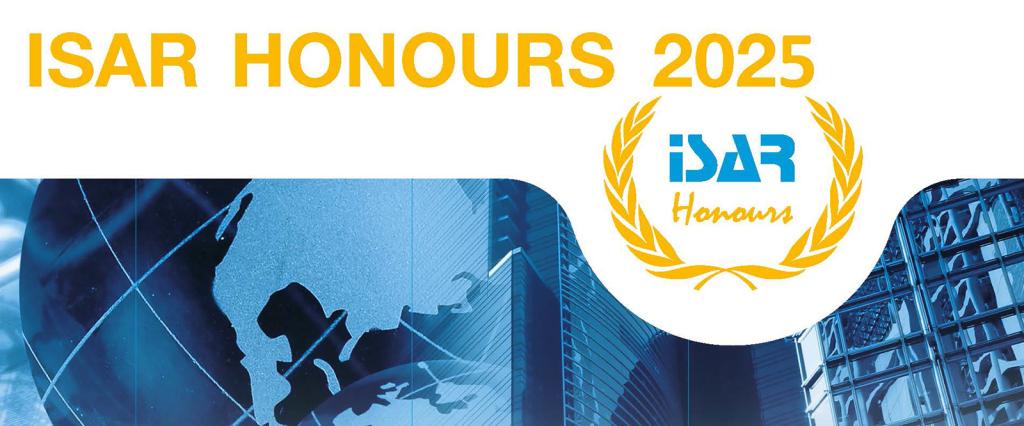
The objective of the “ISAR Honours” is to raise awareness and facilitate dissemination of national and international best practices on sustainability and SDG reporting as an integral of annual reporting by companies.
The Initiative aims to support efforts on enhancing the quality and comparability of companies’ reporting on their contribution to the 2030 Agenda for Sustainable Development, and its usefulness for monitoring the implementation of the Sustainable Development Goals (SDGs).
The ISAR Honours recognizes policy, institutional or capacity-building initiatives that encourage and assist enterprises to publish data on their contribution to the implementation of the 2030 Agenda for Sustainable Development; facilitate improvements in companies’ reporting on sustainability issues, including by promoting the integration of sustainability information, such as environmental, social and governance (ESG) issues, into companies’ reporting cycle.
Review Process
- Why apply
The benefits of participation in the ISAR Honours initiative include, but are not limited to the following:
- Profiling the ISAR Honours applicants on the ISAR website as well as promoting initiatives via social media.
- Raising visibility of the applicants and providing speaking opportunities within the ISAR Honours ceremony (option available for the honourees only).
- Publishing information about all initiatives in the ISAR Honours brochure, including a quote from the organization representative and a link to the organization web-site.
- Enabling honourees to share their experience at other ISAR events and publications.
- Improved visibility of the initiative at the national level and promotion of the local reporting practices etc.
“The benefit of being an ISAR Honouree is international recognition of the initiative and the organization. This drives further participation in the initiative and attention from funders and other stakeholders. It also provides the opportunity to participate on the global UN platform, hence providing a very good profile and positive visibility for the organization.”
Cliff Nyandoro
The Institute of Certified Public Accountants of Kenya (ICPAK)“ ... this award serves as an impetus to galvanise other organizations in our part of the world to take the same route and pursue this noble aim with much resolve.”
Emilio B. Aquino
Chairperson of the Philippines Securities & Exchange Commission- Qualification Criteria
To ensure that potential initiatives qualify for ISAR Honours, please consider the following guidance. It provides examples of types and objectives of eligible initiatives as well as selection criteria including technical aspects of the application.
Past applicants can apply again with the new initiatives if they did not receive the Honour in the past.
Initiatives* in the area of sustainability/ESG/SDG reporting could include, for example, but are not limited to the following:
- Introducing awards initiatives
- Dissemination of good reporting practices
- Coordination efforts for alignment of the reporting requirements or supporting adoption of the international standards
- Developing/implementing guidelines for reporting frameworks
- SDG/ESG reporting facilitation/ acceleration
- Developing/implementing index and benchmark mechanisms
- Setting up knowledge hubs/ platforms/ data repositories
- Developing strategic partnerships
- Developing or implementing training initiatives etc.
* Please kindly consider that corporate reports will not be considered as an eligible initiative
Objectives of the initiative could be, but are not limited to:
- Improving reporting/disclosure on sustainability issues
- Integrating sustainability issues into companies’ reporting cycles
- Promoting collection of data to demonstrate companies’ contribution to implementation of the SDGs
The initiatives will be assessed considering two categories: National and International/Regional. Each category will be evaluated against the following sets of Qualification Criteria:
Qualification Criteria for the National Category
- How does the initiative contribute to better quality of sustainability reporting, consistency of financial and non-financial information and/or facilitate integration of sustainability information into companies’ reporting cycle?
- How does the initiative help to collect useful and reliable data at national level to report on the private sector contribution towards the implementation of the SDGs and/ or report on SDG indicator 12.6.1 Number of companies publishing sustainability reports?
- How does the initiative contribute to increasing awareness, advancing knowledge, and building capacity in sustainability/ESG/SDG reporting at national level?
- How does this initiative have a measurable/proven impact on regulatory and institutional foundations for accounting and reporting at a national level?
Qualification Criteria for the International/Regional Category
- How does the initiative encourage efforts towards consolidation and harmonization among existing reporting frameworks and/or contribute to consensus-building among the main reporting stakeholders at the regional and/or international level?
- How does the initiative contribute to better quality of sustainability reporting, consistency of financial and non-financial information and/or facilitate integration of sustainability information into companies’ reporting cycle?
- How does the initiative help to collect useful and reliable data at regional or international level to report on the private sector contribution towards the implementation of the SDGs and/ or report on SDG indicator 12.6.1 Number of companies publishing sustainability reports?
- How does the initiative contribute to increasing awareness, advancing knowledge and building capacity in sustainability/ESG/SDG reporting at the regional or global level?
- Assessment process
Committee members are requested to rate the applications according to the set of qualification criteria on a scale from 0 (neutral/negative) to 10 (positive) and identify top selected initiatives in several suggested categories.
The Review Committee acts on an ad honorem basis and follow the principle of “independent” votes ensuring that committee members do not submit their initiatives for evaluation within the review period. Additionally, an adjusted average calculation method is applied to remove extremes of the highest and lowest scores for each initiative.
The UNCTAD secretariat compiles scores from all individual members and share the results with the Committee. UNCTAD may support organisation of a Webinar with the Committee members under coordination of the ISAR Chair in the process of the assessment to enable the committee discuss initiatives and assessment details. In case of a significant divergence of views further discussions are conduced to achieve consensus.


